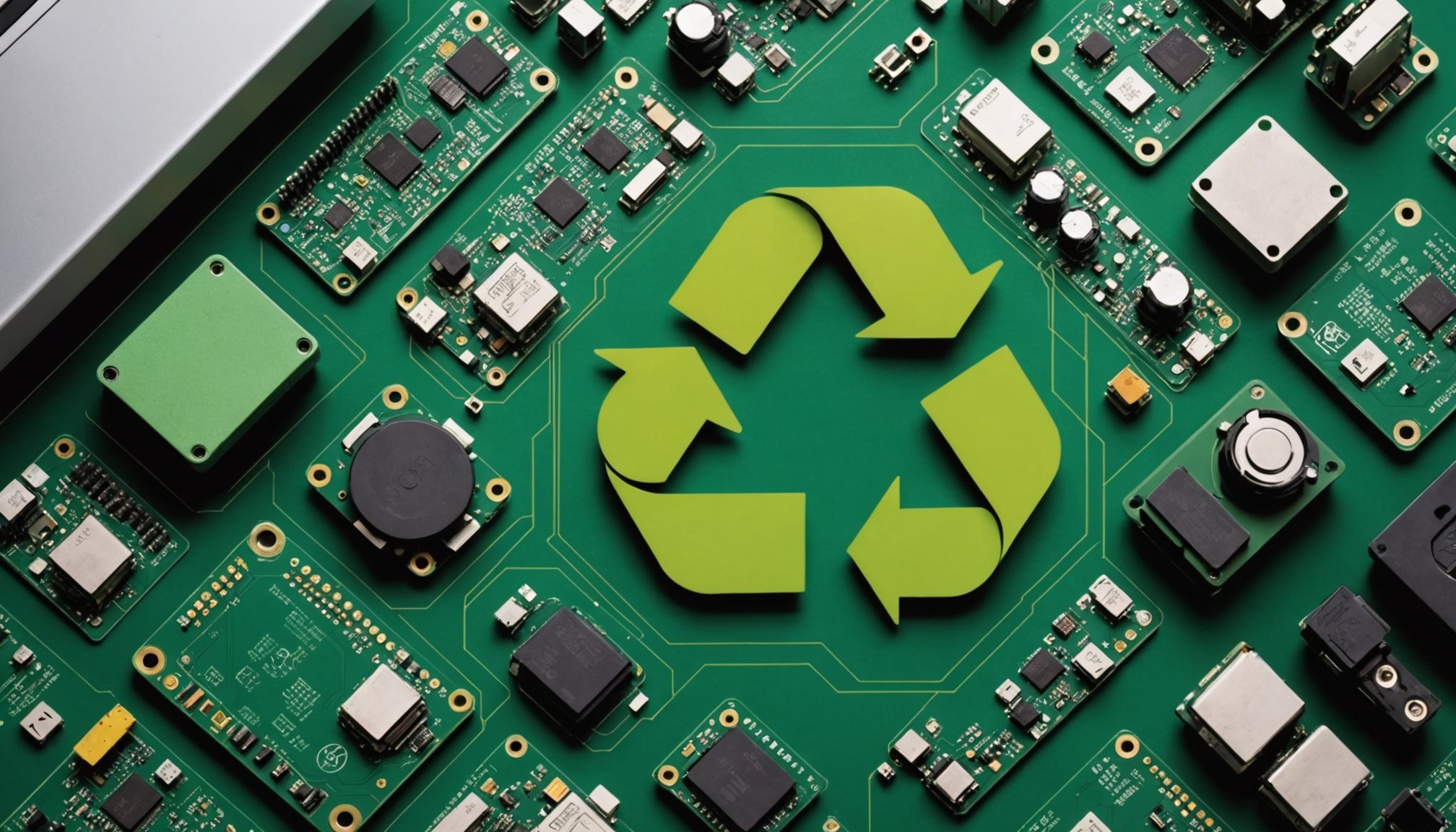Overview of Sustainable Tech Revolution
Sustainable technology emerges as a crucial player in the modern manufacturing arena, offering a pathway to mitigating the escalating environmental impact of various industries. In essence, sustainable technology refers to innovations designed to reduce resource consumption and waste production, thereby ensuring a minimal ecological footprint. For manufacturers, particularly in the UK, this approach can significantly bolster their competitive advantage while safeguarding the planet.
In the UK, hardware manufacturers are at a pivotal juncture. Historically, the industry’s practices have contributed to substantial environmental challenges, from excessive energy use to considerable waste generation. These factors amplify the pressing need for revolutionary approaches, directing focus towards more sustainable methods. The environmental repercussions of traditional manufacturing practices cannot be overlooked, as they play a substantial role in climate change and pollution.
Also read : Unlocking the potential of ai: revolutionizing the tourism industry in the uk
The call for innovation within this sector is undeniable. To align with global sustainability targets, manufacturers must explore cutting-edge solutions. These include the adoption of energy-efficient machinery, waste reduction techniques, and the integration of renewable energy sources. By prioritising sustainability, manufacturers not only contribute to ecological preservation but also inspire a broader shift towards greener practices within the industry.
Strategies for UK Hardware Manufacturers
When planning waste reduction strategies, UK hardware manufacturers can significantly benefit by implementing various environmentally conscious practices. One effective method is adopting a circular economy approach, where materials are reused and recycled, thus minimising waste. Additionally, optimising production processes to reduce material waste not only enhances sustainability but also leads to cost savings.
Also to see : Revolutionizing customer relationship management in the uk: innovative ai strategies you need to know
Implementing state-of-the-art emissions control technologies is crucial for hardware manufacturers striving to minimise their environmental footprint. Technologies such as electrostatic precipitators and scrubbers can effectively reduce harmful emissions by capturing particles before they are released into the atmosphere. This not only helps in complying with governmental regulations but also strengthens a company’s commitment to sustainability.
Lifecycle analysis plays a vital role in advancing sustainability efforts within the hardware manufacturing sector. By assessing the environmental impact of products throughout their lifecycle – from raw material extraction to disposal – manufacturers can identify opportunities for improvement and develop strategies to minimise environmental harm. This extensive evaluation ensures that resources are used more efficiently and sustainably.
Incorporating these methodologies allows UK hardware manufacturers to not only align with environmental standards but also enhance their brand reputation by demonstrating a strong commitment to environmental responsibility and innovation.
Successful Case Studies of Sustainable Practices
Exploring the successful implementations of sustainable practices among UK manufacturers showcases how businesses can contribute positively to the environment. These examples exemplify best practices within the industry and offer insightful lessons.
Case Study 1: Manufacturer A
Manufacturer A has taken a robust approach by integrating renewable energy sources into their production processes. By installing solar panels and adopting wind energy, they have reduced their carbon footprint significantly. The key strategy here was utilising green technology to power their facilities, which also brought a reduction in operational costs. This case teaches that investing in renewable energy can be beneficial for both the environment and the bottom line.
Case Study 2: Manufacturer B
Manufacturer B focused on waste minimisation by launching an ambitious recycling programme. They implemented strict waste segregation and partnered with recycling companies to ensure a circular economy approach. The impact was profound, significantly decreasing their landfill contribution. This initiative highlights how recycling can enhance a manufacturer’s green credentials and operational efficiency.
Case Study 3: Manufacturer C
Lastly, Manufacturer C embraced water conservation technologies. By installing water-efficient fixtures and recycling wastewater, they achieved notable reductions in water usage. This approach not only aided in water conservation but also paved the way for operational cost savings. Implementing such practices can be a valuable lesson for other manufacturers looking to enhance sustainability.
Practical Tips for Implementation
Taking steps towards sustainability in hardware manufacturing is both an opportunity and a challenge. By following a well-defined approach, companies can improve their environmental impact while potentially reducing costs.
Step-by-Step Guide to Adopting Sustainable Practices
Start by conducting a comprehensive audit of current processes. This helps identify areas where sustainability practices can be applied. Setting clear, achievable goals is crucial to track progress and maintain motivation.
Resources and Tools
Explore available resources such as software that monitors energy consumption and waste management apps. Use online platforms to find eco-friendly materials and partners who prioritise sustainability. Emphasise the use of data analytics for better decision-making.
Employee Training and Engagement
Employee involvement is essential for successful implementation. Organise regular training sessions to educate staff on practices and the long-term benefits of sustainability. Encourage them to contribute ideas and solutions, making them active participants in the initiative.
Conclusion
By integrating these actionable tips into daily operations, manufacturers can foster a more sustainable environment. Efficient implementation not only benefits the planet but also enhances brand reputation and future-proofs the business. Engage, educate, and empower your team to drive meaningful change.
Regulatory Guidelines and Resources
Navigating UK environmental regulations can be a complex task for hardware manufacturers. These regulations are designed to ensure that products meet compliance requirements, thereby reducing their environmental impact. The principal pieces of legislation include the Waste Electrical and Electronic Equipment Directive (WEEE) and the Restriction of Hazardous Substances Directive (RoHS). These directives are crucial for maintaining compliance with environmental guidelines.
Manufacturers can access a variety of resources for compliance and support. Practical guidance is available from industry groups and government bodies, such as the Department for Environment, Food & Rural Affairs (DEFRA). These organisations offer frameworks and tools that assist companies in aligning with regulations while fostering sustainable initiatives.
The influence of these regulations extends deeply into manufacturing processes. Compliance necessitates adjustments in production methods, often driving innovation as companies strive to meet stringent standards. For instance, implementing eco-friendly materials and waste reduction technologies is often required to achieve compliance.
These changes, while sometimes challenging, can lead to innovative practices that not only satisfy regulatory requirements but potentially offer new market opportunities. By adhering to these guidelines, manufacturers ensure their operations are both environmentally responsible and forward-thinking.
Future Trends in Sustainable Manufacturing
Technological innovation is revolutionising the future of manufacturing with an emphasis on sustainability. Emerging technologies such as artificial intelligence and blockchain are significantly enhancing resource efficiency and reducing waste. For instance, AI-driven predictive maintenance minimises downtime and energy consumption. Blockchain, on the other hand, ensures transparency in supply chains, fostering environmentally responsible practices.
Predictions indicate a pivotal shift in the hardware industry towards greener practices. The adoption of circular economy models, where products are designed for reuse and recycling, is expected to become mainstream. This approach not only minimises ecological footprints but also reduces long-term costs for manufacturers. Consequently, industries are investing in eco-friendly materials and energy-efficient processes that promise sustainability improvements.
Collaboration among manufacturers, government, and consumers is crucial for driving sustainability. Governments can incentivise green innovations through subsidies and regulations, while consumers can demand environmentally conscious products. As a result, manufacturers are compelled to adopt sustainable practices to maintain competitiveness. This synergy between stakeholders is key to hastening the transition towards sustainable manufacturing, ensuring a balanced approach to economic and environmental needs in the coming years.











